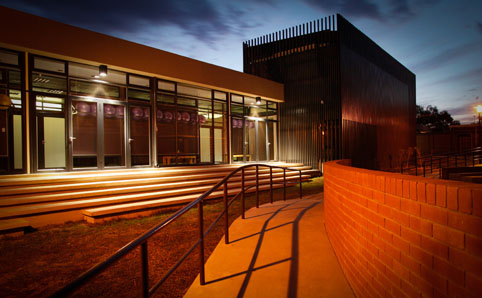Latest News Archive
Please select Category, Year, and then Month to display items
02 January 2025
|
Story Gerda-Marie van Rooyen
|
Photo Supplied
 Leading the research in South Africa is Prof Linus Franke from the Department of Soil, Crop and Climate Sciences.
Leading the research in South Africa is Prof Linus Franke from the Department of Soil, Crop and Climate Sciences.
Scientists are actively pursuing the successful breeding of diploid hybrid potatoes from inbred lines. This is expected to revolutionise potato breeding as it holds the key to rapid genetic progress. It will introduce new varieties for commercialisation through seed. Currently, existing potato variants have a gene that renders self-pollinated seeds infertile.
Prof Linus Franke, an academic in the Department of Soil, Crop and Climate Sciences at the UFS, is leading the research in South Africa. “This technology allows the production of genetically uniform potato seed that is easy to transport and largely disease-free.” He says this differs from conventional breeding whereby only vegetative propagation is possible due to tetraploid varieties in potatoes. It also risks carrying pests and diseases from one generation to the next – leading to the accumulation of pests and diseases with each round of multiplication.
Seed innovation
Prof Franke explains that Solynta BV, a seed company based in the Netherlands that produces potato varieties that can be grown from seed, has included South Africa in their research efforts because it is one of Africa’s largest producers and exporters. Through his academic relationship with Wageningen University and Research, a Dutch institution renowned for its agricultural endeavours and food production, the UFS became involved in researching hybrid potatoes grown from seed.
Diploid seeds containing two sets of chromosomes allow easier gene manipulation to increase predictability and speedier genetic progress. The breeding approach enables the incorporation of tolerance to pests, diseases, abiotic stresses (cold, heat, drought) and other desired genetic traits.
Although Prof Franke is optimistic about this research, he is not blind to disadvantages. “Potato seeds are tiny and have little energy reserves, making it harder to grow potatoes from seed than from tubers.” He says potatoes from seed will take longer to cultivate than tubers, as farmers need to grow plantlets from seeds first, adding six weeks to the growing period. “It is possible that commercial farmers can grow potatoes directly from seed. Alternatively, perhaps more likely, specialised growers will produce tubers of potatoes from seed; these tubers are then sold as seed tubers to other potato farmers, who then continue their normal practices of producing potatoes for the market from tubers.”
Financial benefits
Prof Franke says farmers have reason to get excited. “Seed potatoes will reduce input costs, as varieties with enhanced tolerance to pests and diseases require less pesticides. Planting one hectare of potatoes requires three to four tonnes of potato tubers, but only one 25 g packet of potato seeds.” Since potatoes are a more valuable commodity than maize, this technology might also increase farmers’ income potential.
Kovsies first with Clinical Skills Centre for the allied health professions
2011-10-27
 |
|
First Clinical Skills Centre in South Africa on our Bloemfontein Campus
Photo: Rian Horn
|
The School for Allied Health Professions within the Faculty of Health Sciences at the University of the Free State (UFS) recently opened the first Clinical Skills Centre for the allied health professions in South Africa.
The multifunctional centre will be used for the practical training of undergraduate students in the allied health professions, which include occupational therapy, physiotherapy, dietetics and optometry.
The concept for the Clinical Skills Centre was the brainchild of the Head of the School for Allied Health, Dr Santie van Vuuren. According to Dr Van Vuuren, the Clinical Skills Centre not only addresses specific needs within the South African context, but also fits in with the current curriculum of the programmes within the School for Allied Health. She says the Centre is a symbol of quality and excellence in the training of undergraduate students.
The Clinical Skills Centre was designed in such a way that it can be converted into one or more lecture halls. It boasts the latest technology such as interactive computer screens which can be used for lectures. Most of the equipment students will use during their practical training is on wheels and can be used between different classes. The centre also has a stair lift attached to a banister to transport disabled people from one floor to another in his/her wheelchair.
Media Release
27 October 2011
Issued by: Lacea Loader
Director: Strategic Communication
Tel: 051 401 2584
Cell: 083 645 2454
E-mail: news@ufs.ac.za